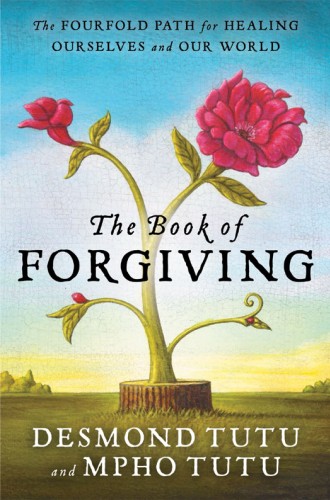The Book of Forgiving, by Desmond Tutu and Mpho Tutu
When Dan and Lynn Wagner received the parole officer’s letter, they had a critical decision to make. Lisa, the woman who had killed their two daughters in an accident while driving drunk and high, was about to be released from prison. In order to continue their own healing and bring closure, the Wagners decided to meet with Lisa. They fully expected to release the relationship and move on, but a completely unexpected thing happened. “When we walked into the meeting room and laid our eyes on Lisa for the first time, we both hugged her,” Dan said. “I don’t know why, but it suddenly seemed as if we had all been through this war together. In that hug and in my heart I felt a sense of relief. We walked into that building in fear, thinking we were finally going to have an end. But it turned out to be a beginning.” Following that meeting, Lynn and Lisa traveled to jails, churches, and universities across the United States to share their story—to be living examples of how forgiveness transforms one’s pain.
The Wagners’ story is but one powerful testimony to the healing power of forgiveness and to our capacity to forgive. Through stories like these, Archbishop Desmond Tutu and his daughter, Anglican priest Mpho Tutu, equip us to answer some of our deepest questions: How can I forgive? How can I become a whole person once again, freed from the harm I experienced or inflicted? How can I live into a new story for my life? Both authors in this dynamic and compelling team bring testimony to heinous crimes they’ve witnessed and experienced in South Africa and across the globe.
There are scads of books on forgiveness, and this is not Desmond Tutu’s first on the topic. In No Future Without Forgiveness (2000), he highlights his iconic work as chair of the Truth and Reconciliation Commission in post-apartheid South Africa. But The Book of Forgiving is markedly different. Rather than a memoir or reflection, it is a useful how-to handbook that helps us wade through a profoundly complex topic. The book is a tool for applying forgiveness in daily life.





